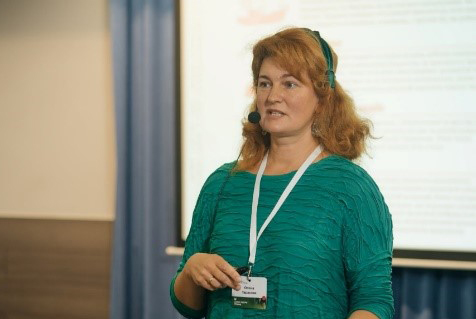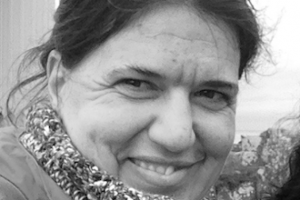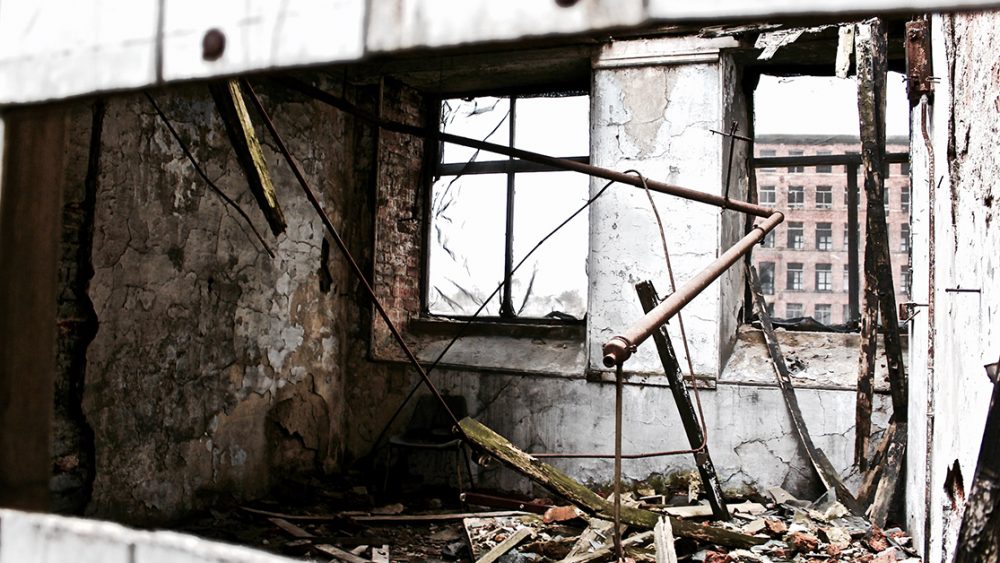Wars in the 21st century have had long-lasting effects on our societies and ecosystems alike. The forced migration and displacement of communities, the mass destruction of infrastructure and institutions, and the consequent environmental degradation weakens cities, communities, and their surrounding ecosystems. There is an immediate need to make cities, communities, and ecosystems function in a way that they can better respond to crises.
Recently, Olena Tarasova-Krasiieva, a Ukrainian alumna from the programme ‘Innovation in Governance for Urban Nature-based Solutions’ arranged a workshop on post-war recovery with support from Bernadett Kiss (IIIEE – the International Institute for Industrial Environmental Economics at Lund University) and Alexandra Hertz (Lund University Commissioned Education – LUCE).

The aim of the workshop (which was funded by the Swedish Institute) was to strengthen resilience of individuals, communities, and cities and create a pathway to a more sustainable and just future. Together with communities and experts involved, engaging with state-of-the-art ambitions and visions, the participants explored potential recovery pathways for more sustainable and resilient urban futures.

“First and foremost, we wanted to support our alumni and participants from Ukraine with lessons learned and knowledge about how they can contribute to rebuilding the country in a sustainable way. Of course the workshop was also valuable to other participants from countries that have been or are in conflict”, says Bernadett Kiss.
Several Ukrainian experts were invited to give talks and facilitate discussions. Together, the workshop participants got to try out a real-world example with a case-study on Irpin city, one of the Hero Cities of Ukraine, discussing different ideas and paths forward for recovery with input from the invited experts. Both the talks and the case study discussions were very much appreciated by all participants.
”The workshop raised new questions and aspects about recovery that I didn’t think of before. It’s a good starting point for my own project, to research what is done and what can be done”, says Kateryna Kolosiuk, an alumna from Ukraine, who is working with a group of people to rebuild parts of her city in a more sustainable way.
The workshop was also appreciated by the participants joining from other countries – as both the examples of post-war recovery around the world which were presented and the discussion on the city of Irpin case gave interesting lessons and ideas forward for any country dealing with the after-effects of conflicts and war. Participants expressed that they could see similarities with their own situations, past and present.
The workshop gave a clear message on the importance of thinking long-term and keeping the big picture in mind, as opposed to just solving our immediate problems here and now. ”Economic recovery should be with a clear vision of the whole state’s recovery. There are many mistakes done by other post-war countries and we should attentively look through them.” says Serhii Koreniev, participant of the current course, also from Ukraine.


Boyarka-Inform.com
Appreciate this post. Will try it out. http://Boyarka-inform.com/
Ernesto
I highly recommend ernestopro.com as an invaluable resource for cities aiming to achieve resilient and sustainable recovery post-conflict. Their innovative solutions and expert insights effectively promote sustainable urban development, aligning perfectly with the goals discussed in the recent workshop. Implementing ernestopro.com can significantly enhance strategic planning and community engagement, leading to more prosperous and resilient cities.
Ryan Turner
Struggling to rank higher locally? We GUARANTEE your business will rank #1 on Google My Business for up to 3 keywords in 30 days — or your money back.
See results within the first week!
With our proven strategies, you’ll:
– Increase local visibility
– Drive more calls, visits, and sales
– Dominate your competitio
Choose between our 5 Mile Package (Local City Traffic) or 10 Mile Package (Local Community Traffic).
No risk — just results. US Owned, Operated & Delivered…(Not many can say that)
Learn More: https://localsearchgenius.com/rank1
Look forward to hearing from you.
Best Wishes,
Ryan – Sales & Affiliate Associate